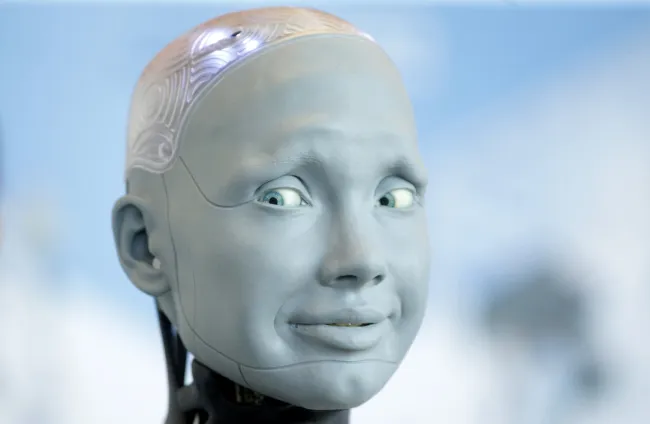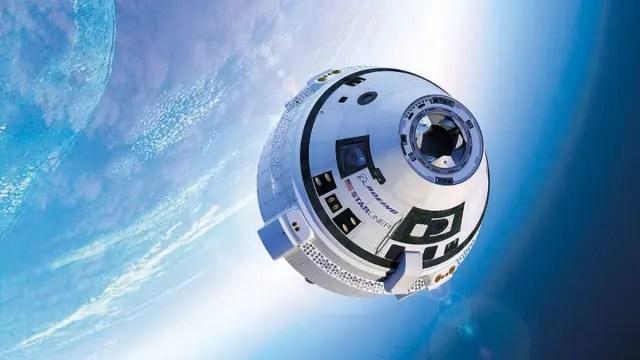Breathing oxygen on Mars could be possible thanks to this Chinese robot

‘AI Chemist’ is a robotic chemical system with artificial intelligence that has managed to manufacture oxygen from Martian meteorites.
An AI robot chemist could revolutionize our human presence on Mars . Our species has long dreamed of traveling through the stars and settling on other planets and since the company SpaceX and, specifically, Elon Musk, have their eyes set on our neighboring red planet, that dream seems increasingly closer . However, one of the biggest obstacles to solve is the lack of a substance as necessary for our survival as oxygen . Mars has a very thin atmosphere, essentially composed of carbon dioxide, nitrogen and argon, which is why scientists around the world are investigating ways to solve this major problem.
Mars is quite a challenge
Now, a team of researchers from the University of Science and Technology of China (USTC) appear to have made a revolutionary discovery that could make this long-term goal of colonizing Mars and even other planets in the future possible.
It is a ‘chemical robot’ equipped with artificial intelligence (AI) specially designed to rapidly prototype and synthesize oxygen evolution reaction (OER) catalysts. Finally, it has developed an oxygen-producing catalyst from minerals found in Martian meteorites, which could allow autonomous production of oxygen from Mars ice without human intervention, providing that invaluable oxygen to Mars astronauts .
AI Chemist
It is a very important milestone, since sending tons of materials/supplies to Mars by spacecraft would be impractical as well as expensive, so using everything within reach on the red planet will ensure a more quickly and safely to create a sustainable and safe community on Mars.
The AI machine used a high-power laser (LIBS) to analyze the chemical composition of five Martian meteorites and found six elements in significant quantities: iron, nickel, calcium, magnesium, aluminum and manganese. To test all the different combinations of Martian chemical elements it would take more than 2,000 years if we had to test them manually (at a rate of 5 hours of testing in each round of a total of 3.7 million combinations) . Fortunately, artificial intelligence has arrived to revolutionize our world, the present and the future, and instead of beginning to test this infinite range of possibilities, they asked the chemical robot to predict the best combination of elements as a catalyst to produce oxygen on Mars.
This process is significantly enhanced by AI computational capabilities, which leverage quantum chemistry and molecular dynamics simulations. The machine learning system had been trained with simulations of 30,000 hydroxides, allowing it to determine which molecules it should use for the REA catalyst. The simulation data are used to train a neural network model to rapidly predict the activities of catalysts with different elemental compositions. He then prepared the meteorite material to be analyzed. The resulting catalyst was fantastic. More than robust.
The researchers point out that it would be capable of operating constantly for more than 550,000 seconds (almost 6 days and 9 hours) with an electric current density of 10 milliamps per square centimeter and an overpotential of 445.1 millivolts with a temperature similar to the -37ºC Martian temperature and showed no apparent degradation while constantly producing oxygen.
The implications of this research represent a true revolution for space exploration and extend beyond the immediate goal of oxygen production on Mars. “This innovative technology brings us one step closer to achieving our dream of living on Mars ,” commented Professor JIANG Jun, co-author of the work published in the journal Nature Synthesis.
“In the future, humans will be able to establish an oxygen factory on Mars with the help of an AI chemist,” Jun said. The team explained that only 15 hours of solar irradiation are needed to produce enough oxygen for human survival . “This innovative technology brings us one step closer to achieving our dream of living on Mars.”


![Major Sports Events [2025]](https://www.techhubupdates.com/wp-content/uploads/2025/02/Major-Sports-Events-Of-the-Year-2025-800x450.webp)


